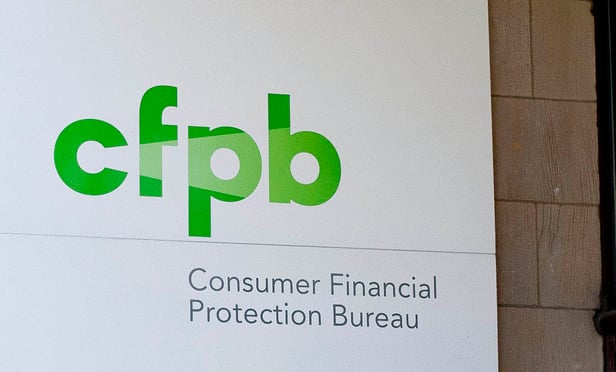 Consumer Financial Protection Bureau building in Washington, D.C. Photo by Diego M. Radzinschi
Consumer Financial Protection Bureau building in Washington, D.C. Photo by Diego M. Radzinschi
The CFPB's overdraft rule is benefitting consumers and should not be changed, 25 state attorneys general said this week.
"As currently structured, the Overdraft Rule ensures that consumers have an opportunity to make an informed decision about whether to opt in overdraft services for ATM and signature debit transactions," the 25 state officials—all Democrats—said, in a letter to CFPB Director Kathy Kraninger. The group also includes the office of the attorney general for the District of Columbia.
Recommended For You
The CFPB has been soliciting comments on whether to change its rule governing ATM and debit card transactions. The rule was issued by the Federal Reserve Board in 2009 and the CFPB took over the rule when the agency was created.
The rule prohibits financial institutions from assessing a fee or charge on a consumer's account for an ATM withdrawal or one-time debit card transaction unless they have given their consent to be charged.
Credit union trade groups have praised the rule, while some consumer advocates have criticized it as another way to lock low-income families into a cycle of debt.
The rule has saved consumers billions of dollars in fees, the state officials said, while also providing consumers with the peace of mind that they will not unexpectedly be charged a substantial fee.
They said that there is no basis to believe that the rule has been a hardship for small financial institutions.
"Given the billions of dollars in revenues overdraft fees have generated for many banks, this is hardly a costly regulatory burden for financial institutions," they said.
The attorneys general added that they would favor expanding the rule to include checks and to require that all overdraft fees be proportional to the amount paid by the bank to cover the overdrawn transaction.
© Touchpoint Markets, All Rights Reserved. Request academic re-use from www.copyright.com. All other uses, submit a request to [email protected]. For more inforrmation visit Asset & Logo Licensing.






